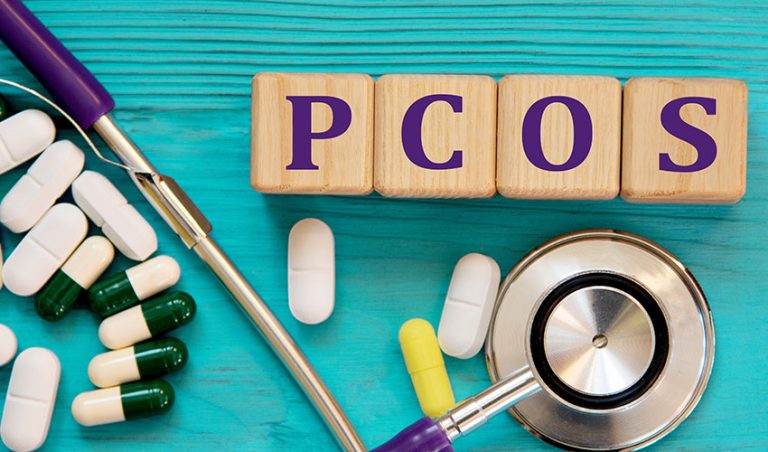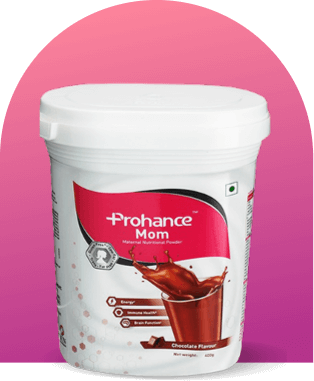
Recently, you might have heard the term PCOS coming up quite often, and you could possibly be curious to know what it is and why it has attracted so much attention. Polycystic Ovary Syndrome, or PCOS, is a common yet frequently misdiagnosed condition primarily impacting women in their reproductive years. It is characterised by an imbalance of certain hormones, particularly excessive male hormones called androgens. This hormonal imbalance can lead to symptoms like irregular periods, for example, extended periods of no menstruation and ovarian cysts, among other PCOS symptoms.
Women having PCOS may suffer different kinds of polycystic ovary syndrome symptoms, which can vary in severity from woman to woman. Moreover, the PCOS symptoms can change as you progress through life. Some women experience PCOS symptoms near the onset of their initial period. Others find out that they suffer from PCOS after they have gained plenty of weight or have had difficulty getting pregnant.
The most common signs and symptoms of PCOS in females include:
It is one of the common symptoms of PCOS. It causes an excess of hormones like insulin and androgens in the body, which can disrupt the menstrual cycle. You can have regular, light, heavy bleeding, or erratic period cycle. PCOS can cause some women to miss their periods altogether.
PCOS may result in male-pattern hair loss (i.e., a receding hairline in the front and hair thinning over top).
Due to elevated androgen hormone levels, PCOS can cause excessive growth of hair on your body and face. This hair is more dense and darker compared to normal hair. It typically appears in areas where men have hair. For instance, on your sideburns, upper lip, chin, thighs, chest, lower abdomen, and nipples.
Elevated levels of androgens in PCOS can enlarge sebum (oil)–producing glands on the skin, resulting in acne (pimples). Although acne is normal during the teenage years, young women having PCOS can continue getting severe acne.
Skin tags, which are masses of skin that appear in your armpits, neck, or around your bra line, can be a PCOS sign.
You may also get dark, rough, velvety skin spots in your neck or armpits.
Common polycystic ovaries symptoms include mood swings, anxiety, stress, and depression. This could be linked to hormonal changes; however, more research is warranted to determine how specific hormones influence emotional well-being.
The lining of your uterus accumulates over a longer period of time. Thus, your period bleeding may be heavier than usual.
Changes in hormones can lead to headaches for some women
During an ultrasound, your doctor may discover that your ovaries appear larger or contain many follicles (egg sac cysts).
The specific polycystic ovary syndrome causes are not known; however, genetics and family history are crucial factors. It is believed that high amounts of male hormones hinder the ovaries from producing eggs and hormones normally. Other factors like genetic disposition, resistance to insulin, and inflammation each have been associated with high androgen levels.
PCOS may also be linked to prenatal hormone levels as well as your lifestyle or environment.
The term ‘polycystic ovarian syndrome’ denotes that the problem is primarily with the ovaries, and that you may have several cysts on your ovaries. However, the polycystic ovary syndrome cause is hormonal.
Pregnancy with PCOS may cause unique difficulties, including infertility in women. Women with PCOS may be more likely to have issues such as pregnancy diabetes (gestational diabetes), preeclampsia (high blood pressure during pregnancy with symptoms of renal or liver disease), and premature labour.
Managing PCOS symptoms and overall health is critical throughout pregnancy to preserve maternal and unborn well-being.
Women with PCOS, on the other hand, can conceive by utilising fertility therapies that increase ovarian function. Losing weight and controlling your blood glucose levels can help you have a healthier pregnancy.
PCOS causes a variety of symptoms and can complicate conception. Understanding and addressing these issues is critical for a successful pregnancy.
Prohance Mom is a protein powder for pregnant women and women experiencing fertility issues. It improves women’s chances of conception and promote a healthy pregnancy by providing vital nutrients that help fulfil nutritional needs during pregnancy and lactation. It enhances overall health, increases the immune system, strengthens bones, and supports digestive health. By incorporating this nutritional supplement in your daily routine, you can better control polycystic ovary syndrome symptoms and improve overall health.
As always, consult a doctor before beginning any new supplement to ensure it meets your specific health needs.
